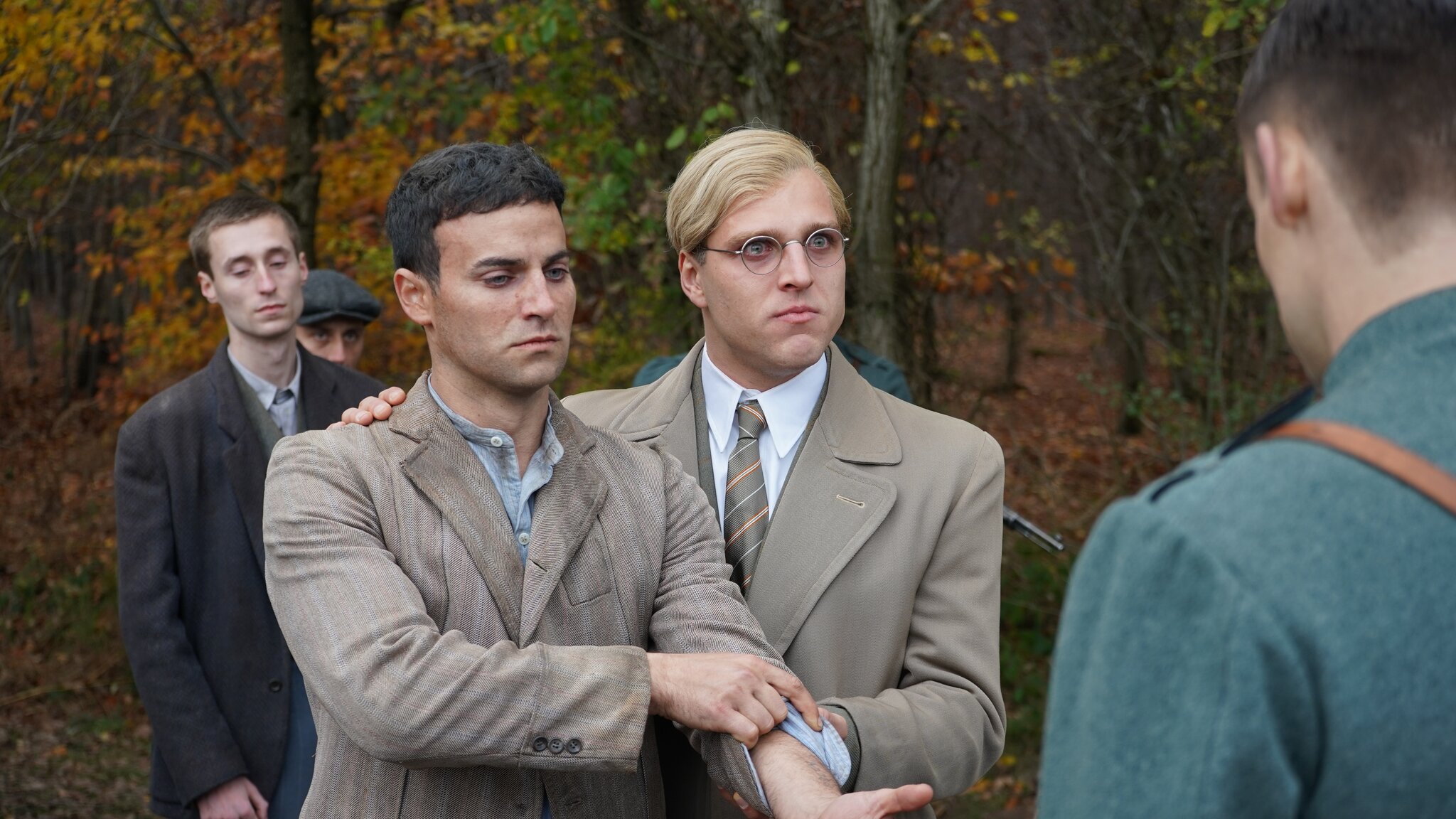The brave German pastor Dietrich Bonhoeffer, who railed against the Nazis and his church for doing nothing in the face of Hitler, is well-known in theological circles for his own extensive and influential writings. Dozens of books have been written about him, eight plays, one opera and several films, the latest of which is a big screen dramatization from Angel Studios.
“Bonhoeffer: Pastor. Spy. Assassin.” would like to stress those last two descriptors, though they are likely a lesser part of his legacy. Bonhoeffer is remembered for many pithy, inspirational quotes, including “Silence in the face of evil is evil itself” and “We must allow ourselves to be interrupted by God.”
But the ads for “Bonhoeffer” have a quote he never said, “How far will you go to stand up for what’s right?” Even more out of character is depicting the Bonhoeffer character holding a gun.
In the film, written and directed by Todd Komamicki, the Bonhoeffer character hears out a plot to assassinate Hitler and for a time pretends to have bought into the Third Reich as a way to get information for the ultimately foiled plot.
But the most affecting part of the film, and Bonhoeffer’s life, came in convincing others to open their eyes to the growing menace and standing at the pulpit to say Hitler is not the Messiah — shortly before he’s apprehended and the Bible is replaced in churches by Mein Kampf.
It doesn’t help that the actor playing Bonhoeffer, German actor Jonas Dassler (who once portrayed an SS officer in “Inglorious Basterds”), is a bit off-putting, not only for his preachiness but for his angular expressions and a blonde dye job that never looks right (It doesn’t work, either for poor Phileas Heyblom, who portrays Young Dietrich Bonhoeffer).
Shot in Limerick, Ireland, subbing for Germany and other locales, there is a darkness in John Mattieson’s cinematography. And the tendency to stuff Bonhoeffer’s dialog with as many of his famous lines as possible — on or off the pulpit, including casual conversation, there is a dullness to the proceedings that doesn’t fit the war genre.
And maybe more famous than anything Bronhoeffer said was the famous phrase of his colleague Friedrich Gustav Martin Niemöller that begins, “First they came for the socialists, and I did not speak out — because I as not a socialist.” With August Diehl in the role, we get to hear it as well.
Perhaps sensing the gabbiness overall, there are a few long, wordless scenes, especially in the beginning, with a long hide-and-seek game here, a full length jazz performance there. It doesn’t help. All told, it clocs in at two hours and 15 minutes.
It’s interesting what they chose to take from the Bonhoeffer story and what they didn’t. He did have a romantic interest but that was never brought out. That he had a strong bond with his mother (Nadine Heidenreich) is about as much female presence that occurs in the film.
Of the unusual Harlem foray, Clarke Peters of “The Wire” is seen as Adam Clayton Powell Jr., with whom he bonded there.
One might question other aspects of the story — in an auto transport instead of a train, he’s allowed to incessantly write in his notebooks. One SS officer picks up the Bible he’s dropped for him.
It wouldn’t do to show Bonhoeffer to church audiences as he really died – naked. Instead, Dassler’s pastor seems to be looking forward to becoming a martyr, even as the war would end days later.
Angel Studios has a unique setup — renting its own theaters and heavily promoting to the church crowd, where peer pressure may be high (and non-attendance a possible sin!). There’s also an undercurrent of the same right wing politics that made last year’s “The Sound of Freedom,” about child trafficking that honed close to an QAnon theories, a huge hit.
One could theorize the timing of the release of “Bonhoeffer,” ready since last year, might have been meant to fire up post-election uprisings had the election not gone the way they wanted (“How far would you go to stand up for what’s right?”).
The way things turned out, ironically, the film now may speak to those who came up short in the election, undergirding any urges of resistance. Hence, something for everyone. But it plays too dull to be very effective for anyone.
